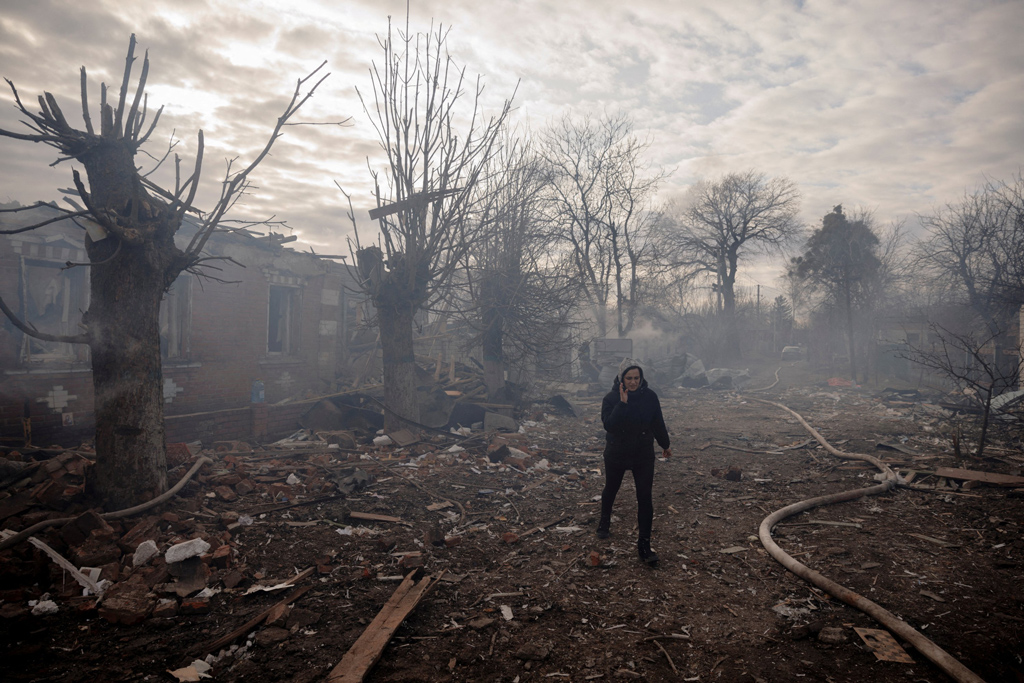The Ukrainian war has shown the world that the current international system is not sustainable and not functioning well. Mainly, the founders of the system, i.e. the Western countries, do not respect the very basic norms, rules and principles of the international system and decisions of international institutions. Western countries have been exploiting, and if necessary, violating political and economic principles of the international system. Recently, other global actors have joined Western countries in taking unilateral actions and intervening in the domestic affairs of other states. Thus, the Western monopoly on violating international norms has been broken. In line with the rules of realpolitik, many states have begun to use military force to maximize their respective national interests.
Within this context, the Ukrainian crisis can be considered a watershed in international politics for several reasons. First of all, when Russia occupied and illegally annexed the Crimean Peninsula in 2014, Western countries did not respond appropriately. Instead of punishing Russia severely, Western countries repeated the Russian way of doing politics in other parts of the world. For instance, only three years after the illegal annexation of Crimea, the U.S. government recognized
the annexation of the Golan Heights by Israel. Thus, “annexation by occupation” has become the rule for powerful states. This will pave the way for more powerful states to occupy and annex weaker states in the system, which will cause further chaos on a global scale.
U.N. failure disclosed
Also, the Ukrainian war has shown that the U.N. system does not work since it cannot provide solutions to important international crises. The U.N. cannot make any effective decision against one of the permanent members of the U.N. Security Council due to their veto power. Especially with the emerging multipolar global system and the increasingly conflictual relations between global powers, it is almost impossible for the Western powers to pass any resolution via the Security Council. In other words, international organizations such as the U.N. and its specialized institutions do not serve the interests of the Western countries anymore, at least as they expect. On the contrary, due to the rising power and effectiveness of non-Western countries, international organizations often make anti-Western decisions. For example, the U.N. General Assembly passed a resolution in 2017 declaring the U.S. recognition of the “united Jerusalem” as the capital of Israel as “null and void,” since the U.S. recognition was a departure from the previous Security Council resolutions and prevailing international norms.
Second, the Ukrainian war has shown the world that Western countries cannot claim moral superiority over any other state anymore, since they have shown that human rights rules matter only when they are violated against a Western/European country. Unfortunately, Western countries did not heavily question the mass killings by the Russian military in the Syrian or Libyan crisis. On the other hand, for Western countries, the legitimacy and violation of both the attacker and the attacked depend on the context. That is, when Russia violates the rights of non-Europeans, Western countries generally remain indifferent. However, the Russian violation of the rights of a European nation, i.e. Ukrainians, will be punished by the West.
Titular of norms
In other words, the Ukrainian war has revealed that Western countries do not adhere to universal values and international norms. It is now clear that Western countries neither respect universal human rights nor are concerned about the lives of non-Western peoples. They not only remain indifferent to violations of human rights in other parts of the world but also directly or indirectly cause these human rights violations. Therefore, Western countries can be held responsible for mass killings in different civil or regional wars due to selling weapons to warring sides or supporting one of the warring actors.
Law violated without pause
Third, with the invasion of Ukraine, Russia has violated the very basic principles of international law such as non-intervention in the domestic affairs of another country, respect for territorial integrity and political independence of other countries. There is no doubt about it. However, this does not mean that Western countries adhere to these principles. The West has been insistently intervening in the domestic affairs in the Middle East, Africa and Latin America. Unfortunately, Ukraine is also such a case. Russia has been intervening in the domestic affairs of Ukraine since the declaration of its independence. However, the West also directly or indirectly intervened in the domestic affairs of Ukraine as well. Western countries did not allow pro-Russian politicians to come to power or remain in power in 2004 and 2014. Unfortunately, Ukraine has been on the table of the two conflicting polities for the last two decades.
The membership row
Fourth, Moscow has been insistently expressing its opposition to Ukraine’s NATO membership. Although Russia declared Ukraine’s NATO membership a red line, Western countries insistently stated that Ukraine would become a NATO member. In the end, Ukraine did not become a NATO member, and NATO did not defend it against the Russian invasion. Now, the Ukrainian leadership has declared that they are ready to discuss the “permanent neutrality” status of their state. That is, there is no reason for the Ukrainian state and its people to pay the price for the success of the policies of the Western countries.
All in all, nothing can justify the Russian invasion of Ukraine. Russia has violated the main principles of international law and is committing crimes in Ukraine. Similarly, the West should stop the instrumentalization of the Ukrainian state and its people. Although Ukraine is stuck between the global powers, namely the West and Russia, neither side has the right to instrumentalize the lives and rights of the Ukrainian people. No supreme political objective can justify the killing of innocent people, either in Europe or in other regions and continents of the world.
[Daily Sabah, March 30, 2022]







